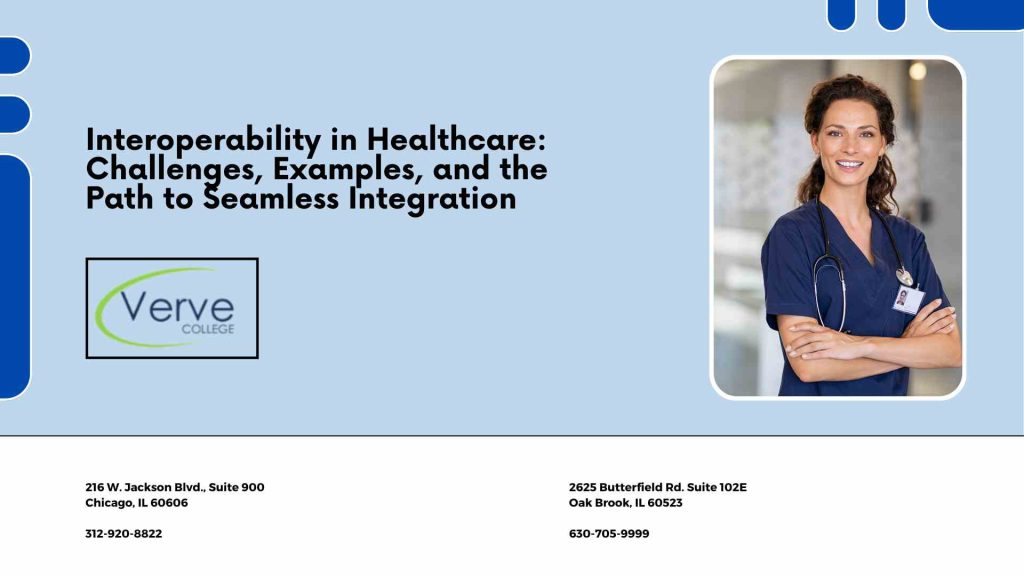- Oak Brook:(630) 705-9999
- Chicago:(312) 920-8822
- Email:inquiry@vervecollege.edu
- Make a Payment
- Home
- Programs
- Admission
- Resources
- ATI Entrance Exam Resources
- New E-Digital Library
- Refer a Friend
- School Newsletter
- Events
- Employers
- Job-Network
- Alpha Beta Kappa Candidates
- Verve College Library
- Graduation and Pinning Ceremony Photo Galleries
- Textbook Information
- Career Services
- Tutoring
- School Catalog
- FAQ
- Constitution Day Program
- Alumni
- Verve College Plans
- Financial Aid
- HEERF Reporting
- Satisfactory Academic Progress
- Apply For Financial Aid
- Net Price Calculator
- Return of Title IV Funds (R2T4)
- Financial Aid Office Code of Conduct
- Contact
- FAQs
- Verification Policy
- Vaccination Policy
- Student Right-to-Know Act
- Misrepresentation
- Information Security Program
- Academic Award Year
- Availability of Employee
- Cost of Attendance
- Health & Safety Exemption Requirement
- Students Rights and Responsibilities
- Leave of Absence
- Pell Formula
- Military Students
- Grants/ Scholarship Policy
- Contact Us
- Testimonials
- Blog
Is a Nursing Career Right For You?
Take The Free Quiz
Interoperability in Healthcare: Challenges, Examples, and the Path to Seamless Integration
Interoperability in Healthcare: Challenges, Examples, and the Path to Seamless Integration
Healthcare facilities and hospitals of today depend on electronic health information being secure, private, and easily accessible for doctors and patients. Interoperability is a significant factor in the efficiency of hospitals’ operations. What is interoperability in the healthcare landscape? Why is interoperability essential in healthcare, and what do these implications mean in the long run for healthcare?
What is Interoperability in Healthcare?
Interoperability in health care refers to the security, speedy access, integration, and utilization of electronic health information to ensure that it enhances patient health outcomes for both individuals and groups.
Interoperability is the capability to allow two or more devices, healthcare information systems, or programs to connect and exchange, integrate, or utilize health information in a coordinated fashion. It allows seamless transfer of data across organizational, regional, and national borders. This means that healthcare interoperability tools allow information to be accessed securely as well as shared with the whole clinical settings from clinics and hospitals to insurance companies as well as individuals.
While the acceptance of EHRs is a positive beginning to building HIEs, numerous obstacles remain that must be overcome to reach the levels of interoperability required to reap the full advantages of HIEs. ATI nursing school with prerequisite courses acknowledges the importance of interoperability in modern healthcare systems.
Challenges of Interoperability in Healthcare Are as:
The absence of a standardization process: Even though interoperability standard formats for medical records like FHIR or HL7 have become popular and regulations are requiring EHR providers to develop APIs that allow interoperability, Many health care providers and systems utilize custom EHR systems that are difficult to convert to accepted format and share with other providers.
Security: Value-based care may find it difficult to reconcile the need for medical information to be available with the need to protect sensitive information while maintaining patient privacy, particularly with the growing number of cyber attacks targeting healthcare settings.
Consent: Through the development of digital health systems that allow health information systems to be freely transferred between providers, it can sometimes be clearer what level of consent is required from the patient and what level of consent is required. Healthcare providers are naturally cautious and tend to avoid sharing data. It is necessary to enroll in practical nursing programs to fully address these challenges.
Professional problems: When new instruments for recordkeeping are developed, people are required to understand how to utilize these tools. Practical nurses are generally skeptical about the latest technology because EHR systems typically perform better at supporting billing and administrative workflows than they do for clinicians’ requirements.
Related:- What LPN Programs and Healthcare Professionals Need to Know About Evidence-Based Practice
These issues aren’t insurmountable. With the advancements in cloud computing and specifically the hybrid cloud model, it’s now easier for companies to move and protect data consistently. Cloud computing environments offer the opportunity for companies to create data pipelines that convert data into a standard format such as FHIR, and offer secure access to those who require it, whether they’re providers, patients. Let’s understand why is interoperability important in healthcare
Why is Interoperability Important in Healthcare?
Health information has always been challenging to share and access securely. The nature of health information is a paradox. It’s a challenge of interoperability in healthcare to share since the data is sensitive and demands strict security and privacy. Still, the inability to access it when required could cause serious damage. Lack of interoperability could lead to a poor understanding of a patient’s health issues, which can result in lower patient outcomes and more expensive costs.
Interoperability and knowledge exchange will be more and more necessary to deliver quality healthcare as the world’s population ages and leads longer lives. Within the United States, the Agency for Healthcare Research and Quality has determined that 2/3 of elderly Americans are suffering from at minimum two mental health or physical ailments. Treatment of people suffering from multiple chronic illnesses currently accounts for around 66 percent of US health care costs.
In their national plan of action (link is not available on ibm.com), The Office of the National Coordinator for Health Information Technology (ONC) states that using electronic health records (EHRs) has significantly grown within the United States. A majority of hospitals or nursing homes have access to medical care for patients’ records as well as information about patients from outside medical providers, yet only half of the hospitals have integrated the information they receive into patient records.
Therefore, even though access to crucial clinical information has improved, there’s plenty of work being done to connect all stakeholders to create a unified data system. However, The role of nursing schools near me is vital in tackling these issues.
 Sign up
Sign up Login
Login




